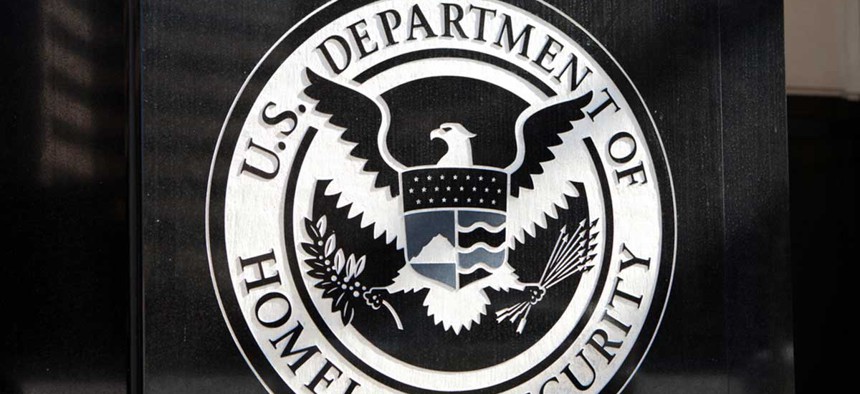
Mark Van Scyoc / Shutterstock.com
Homeland Security Offers Training to Combat Human Trafficking
Awareness effort for all agencies is part of governmentwide enforcement campaign.
Courses offered by Federal Law Enforcement Training Centers will now include material aimed at raising awareness of human trafficking within the United States, the Homeland Security Department announced on Wednesday.
The announcement, made as part of National Slavery and Human Trafficking Prevention Month, said the centers, which serve law enforcement agents from every Cabinet agency, will now “equip graduates with the ability to better recognize signs of human trafficking that they might encounter in their routine law enforcement duties.”
“To fight human trafficking in the United States, we are empowering federal law enforcement with the tools and resources to recognize and report this heinous crime,” said Deputy Homeland Security Secretary Alejandro Mayorkas.
DHS is tackling the issue through its larger DHS Blue Campaign to locate victims of sexual exploitation and forced labor and prosecute their exploiters. The campaign enlists the help of first responders, social workers, community volunteers, teachers and faith-based groups. Training of federal employees is provided in part by Immigration and Customs Enforcement and U.S. Citizenship and Immigration Services.
“DHS also provides immigration relief to non-U.S. citizen victims of human trafficking,” the department said in a statement. “DHS utilizes a victim-centered approach to combat human trafficking, which places equal value on identifying and stabilizing victims and on investigating and prosecuting traffickers. DHS understands how difficult it can be for victims to come forward and work with law enforcement due to their trauma. DHS is committed to helping victims feel stable, safe and secure.”
The broader whole-of-government effort, which involves the FBI and the State Department, includes the President’s Interagency Task Force to Monitor and Combat Trafficking in Persons.
Homeland Security’s inspector general reported earlier this month that ICE and USCIS did not always share human trafficking data that would facilitate better case management.
(Image via Mark Van Scyoc / Shutterstock.com )
NEXT STORY: Are the Oregon Occupiers Ready to Give Up Yet?







